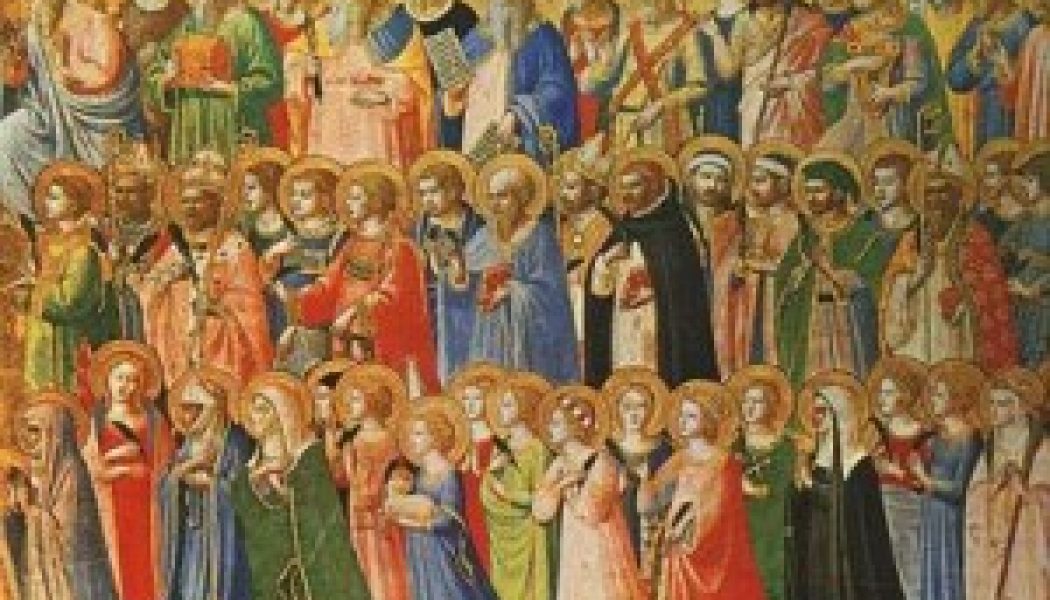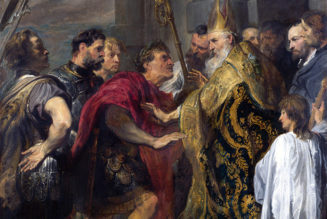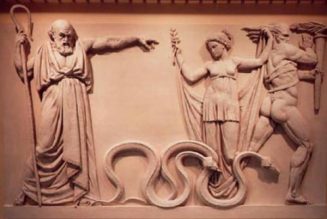 There is a remarkable statement at the end of the eleventh chapter of the Letter to the Hebrews. It speaks to the unity of the mystical Body of Christ and to the treasury of merit, which extends both backward and forward in time. Hebrews 11 is devoted to reciting the glory of many Old Testament saints. That litany concludes with the following verses:
There is a remarkable statement at the end of the eleventh chapter of the Letter to the Hebrews. It speaks to the unity of the mystical Body of Christ and to the treasury of merit, which extends both backward and forward in time. Hebrews 11 is devoted to reciting the glory of many Old Testament saints. That litany concludes with the following verses:
These were all commended for their faith, yet they did not receive what was promised. Since God had provided something better for us, that apart from us they should not be made perfect (Heb 11:39-40).
It is astonishing to think that we who live now might have had anything to do with the sanctity and heroism of the saints who came before us, but the text says that without us they would not have been perfected.
How can this be? Simply put, it is because we are all members of the Body of Christ, and Christ transcends time. What we do today touches both the past and the future, for to Christ all things are present in the “eternal now.”
Therefore, consider well that whenever you offer your sufferings or prayers or good works, you are contributing to the treasury of merit from which people of all time may draw. Whatever we do to contribute to this treasury of merit has always been known to the Lord and is always present to Him.
Of this treasury, the Catechism of the Catholic Church teaches,
The ‘treasury of the Church’ is the infinite value, which can never be exhausted, which Christ’s merits have before God. They were offered so that the whole of mankind could be set free from sin and attain communion with the Father. In Christ, the Redeemer himself, the satisfactions and merits of his Redemption exist and find their efficacy.
This treasury includes as well the prayers and good works of the Blessed Virgin Mary. They are truly immense, unfathomable, and even pristine in their value before God.
In the treasury, too, are the prayers and good works of all the saints, all those who have followed in the footsteps of Christ the Lord and by his grace have made their lives holy and carried out the mission the Father entrusted to them. In this way they attained their own salvation and at the same time cooperated in saving their brothers in the unity of the Mystical Body [CCC 1476-1477].
Is it possible that I, even if in a tiny way, contributed to the holiness of my patron, St. Charles Borromeo, or of my heroine, St. Catherine of Sienna? Yes, albeit in a small way. My contribution to the treasury of merit is but a drop in the ocean compared to what Christ has provided and the saints have deposited. Yet without us and our contributions they would not be perfect. We all contribute, by the grace of Jesus, to one another’s sanctification.
Ponder, then, the sweeping effect of your contributions to the treasury of merit! Whenever you offer your sufferings to the Lord, whenever you pray, whenever you perform good works, you make available to Christians of every age an additional store of grace on which they have drawn or may draw. All of this is solely by the grace of God, and because of that grace it is a reality.
St. Paul also speaks to this:
Now I rejoice in my sufferings for your sake, and in my flesh I am filling up what is lacking in Christ’s afflictions for the sake of his body, that is, the Church, of which I became a minister according to the stewardship from God that was given to me for you (Col 1:24-25).
Of course, there is nothing intrinsically lacking in the once-for-all, perfect sacrifice of Christ. It is only imperfect (or incomplete) from our perspective in time, in which each of us, as a member of the Body of Christ, “waits” to bear our sliver of the passion and cross. The Lord, however, isn’t waiting for anything. What we have done, are doing now, or will do in the future has always been present to Him. While our contributions extend forward in our chronological time, they also go backward and are part of the perfect and full treasure of merit on which the members of the Body of Christ have always drawn.
It is awe-inspiring to ponder how we all affect one another over time!
All this said, we ought also to be aware that if we can contribute to one another’s growth in holiness, we can also detract from it and harm others through our sins. It matters whether or not we pray, whether or not we offer our sufferings to the Lord, whether or not we strive for holiness.
We are one Body in Christ. Consider well your role in helping others to be holy. Did your contributions to the treasury of merit help the saints of old to become saints? Even if in a small way and only by the grace of God, the answer is yes, for apart from us they should not be made perfect.
In the video below, one woman’s laughter is infectious, affecting everyone around her. Let’s pray the same for holiness.
[embedded content]








